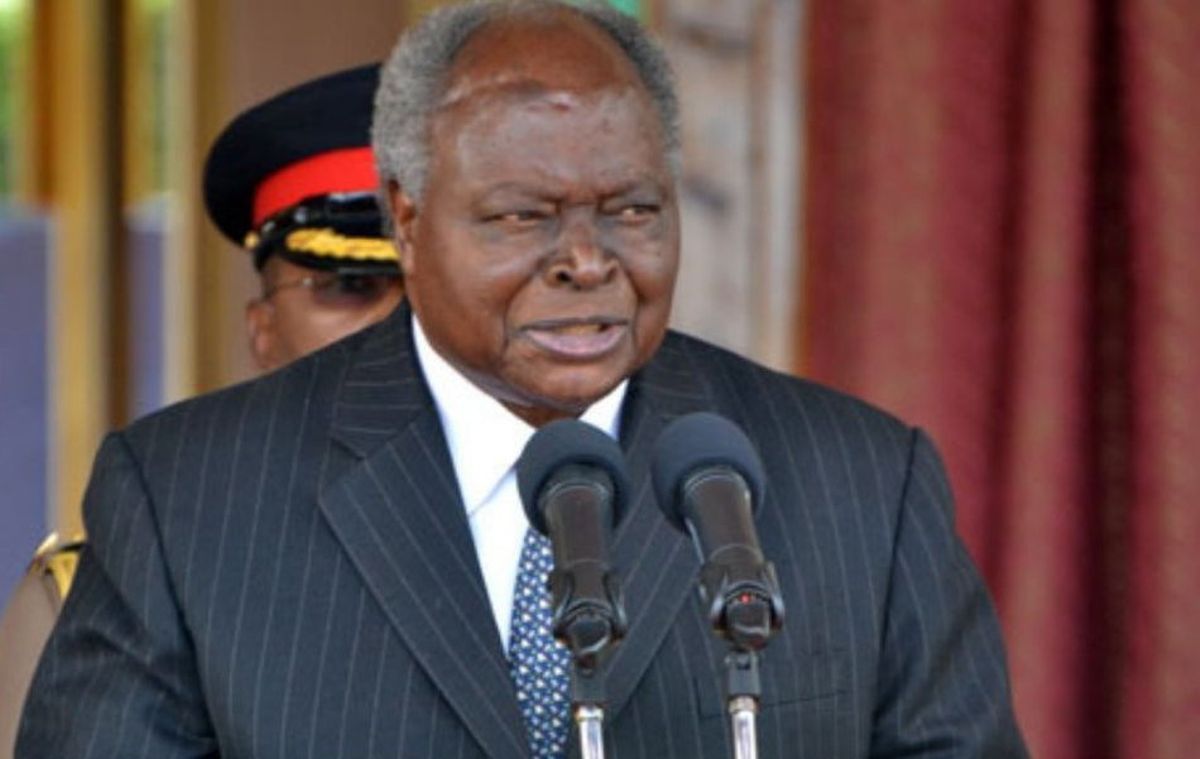
Nairobi, September 9
Political strategist Mutahi Ngunyi has revealed little known details about the role former Prime Minister Raila Odinga played in saving President (Rtd.) Mwai Kibaki's life after he was involved in a road clash in 2002.
Kibaki, who was then running for the presidency under the National Rainbow Coalition (NARC), was involved in an accident while on his way back to Nairobi from campaigns in Machakos.
The December 3, 2002 accident saw the former President suffer broken bones and was flown to London for treatment after receiving first aid at a city hospital.
Mr Odinga, who had endorsed Mr Kibaki for the presidency and campaigned alongside him across the country, was in a convoy with the former president when the accident happened.
The vehicle Mr Kibaki was driving in lost control, rolled several times and ended in a ditch, badly injuring him on the ribs and the legs.
When the accident happened, Mr Odinga is said to have mobilised rescue and evacuation efforts to ensure that Mr Kibaki got to the hospital as soon as possible and before the bleeding got worse.
Mr Ngunyi now claims that upon the arrival of the ambulance that was to take Mr Kibaki to the hospital at the scene of the accident, Mr Odinga was so paranoid that he could not trust the driver.
Ngunyi adds that Mr Odinga personally drove the ambulance from the scene to Nairobi Hospital where Mr Kibaki was first treated before being flown out.
"Raila did not trust the driver of the ambulance that took Kibaki to hospital after the Machakos accident. He drove the ambulance himself. Fact of history," stated Mr Ngunyi.
After the incident and as Mr Kibaki recuperated, Mr Odinga carried on with the campaigns to ensure they clinched the victory. Mr Kibaki would later in January 2003 be sworn in as the country's president while on a wheelchair.
During this period, Mr Kibaki and Odinga had joined forces against then independent party KANU's Uhuru Kenyatta, who was being fronted by then President Daniel Arap Moi.
Mr Kibaki and Odinga, both whom had served under the government of Mr Moi, had previously contested for the presidency but the KANU regime was a force to reckon with.
In 2002, Mr Odinga's declaration of Kibaki Tosha at a Uhuru Park rally, saw the tide change with KANU taking a beating from the electorate at the ballot in December of the same year.
KANU had been in power for 40 years, out of which the late President Moi was at the helm of the country's leadership for 24 years.
The Kibaki-Raila coalition that brought together other like-minded politicians including incumbent Kitui Governor, Charity Kaluki Ngilu, Meru's Kiraitu Murungi and former powerful Cabinet Ministers the late George Saitoti, the late John Njoroge Michuki, the late David Mwiraria, and Chris Murugaru.
Upon this defeat, KANU has never regained its political footing and has since suffered internal wrangles even under the leadership of Gideon Moi, the Baringo Senator and son to former President Moi.
By Fridah Wangechi | 1 year ago
By Fridah Wangechi | 1 year ago
By akirimi | 2 years ago
By Fridah Wangechi | 1 year ago
By Fridah Wangechi | 1 year ago